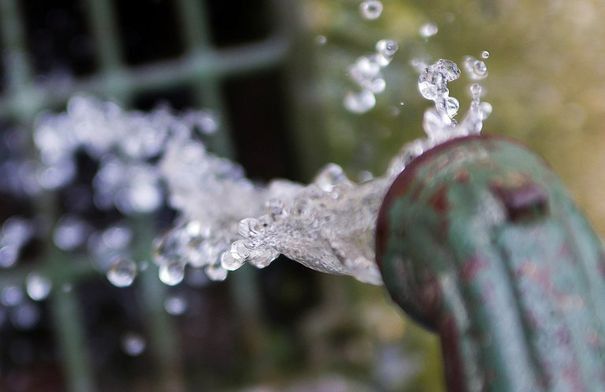It is a report went relatively unnoticed. On April 12, the General Inspectorate for the Environment and Sustainable Development (Igedd) published a “feedback on water management during the 2022 drought”, at the request of four ministries (Interior, Agriculture, Health and Ecology). The authors met with several hundred water policy players in around thirty departments, and made eighteen recommendations, some of which are integrated into the government plan for water management, presented by Emmanuel Macron. March 30. The latter wishes to “set a cap of 10% water savings” for all sectors by 2030: energy, industry, tourism, leisure and of course agriculture.
Because for Igedd, “water is still too frequently considered as an inexhaustible and free resource”. However, “in the very short term, the period of more than a month without rain at the start of 2023 in France and the organization of exceptional events, […] as in the summer of 2023 the Rugby World Cup, then in 2024, the Olympic and Paralympic Games, require particular vigilance as to the risk of a rupture in the supply of drinking water”, warns the report.
Bottled water dispensing
Four municipalities in the Pyrénées-Orientales are already experiencing such a situation: Bouleternère, Corbère, Corbère-les-Cabanes and Saint-Michel-de-Llotes have been organizing since April 14 bottled water distributions to their 3,000 inhabitants, said to AFP the president of the inter-municipal drinking water supply union, Jean-Pierre Saurie. The department, bordering Spain, is one of the most affected in France by drought: between September and March, the level of precipitation was halved compared to normal, according to Météo-France.
Consequence: “the level of the drinking water drilling on Bouleternère has reached its sampling threshold”, indicated the town hall of Corbère-les-Cabanes on his Facebook page. While waiting for the new drilling connection, next Friday, “tap water is prohibited for consumption until the Regional Health Agency authorizes it”. Residents will receive “one pack of water per person per week” free of charge.
During the summer of 2022, more than a thousand municipalities were also forced to put in place a whole host of measures to supply their inhabitants, also recalls the Igedd. Among them, 343 had to transport water by truck, and 196 distribute water bottles, no longer being able to supply water from the tap. “No major city has experienced a supply disruption, although some have not gone far”, specifies the Igedd, while recalling that “more than 1,200 rivers had completely dried up on August 1 2022”.
“Soft” restrictive measures
So what to expect from the summer of 2023? Last February, Christophe Béchu, Minister for the Ecological Transition, announced the establishment of a drought anticipation committee, after France experienced 32 days without rain, a record for winter since 1959. make the French responsible for their water consumption and the actions to be taken”, he warned, announcing “soft” restriction measures, like the 87 municipalities of the Var prefecture faced with bans related to washing cars , watering gardens or filling swimming pools.
On average, between 2008 and 2019, the annual volume of water consumed was estimated at 5.4 billion cubic meters in metropolitan France, or 82 cubic meters per inhabitant, according to the Ministry of Ecological Transition. Over this period and for the months of June to August, water consumption represented “about 60% of the annual total”.
Questioned by L’Express last February, the doctor in agroclimatology Serge Zaka was divided on these measures. “If we start to use water in winter that we don’t really need, we risk having less of it during summer droughts. We know very well that we are going to be in deficit, so we have to anticipate and save water. water in the groundwater for essential sectors such as agriculture”, he recalled first, before affirming that they would not however be enough to catch up with the delay in filling the groundwater tables by this summer. “For that, you would need to have 200 millimeters of water throughout France, that is to say that it rains every day. It’s impossible!”, He indicated.
On April 13, the Geological and Mining Research Bureau (BRGM) announced that 75% of the water tables are at a level considered below normal, against 58% a year ago. According to the BRGM, part of the Pyrénées-Orientales department is considered to have a “very high” risk of drought for the summer.
